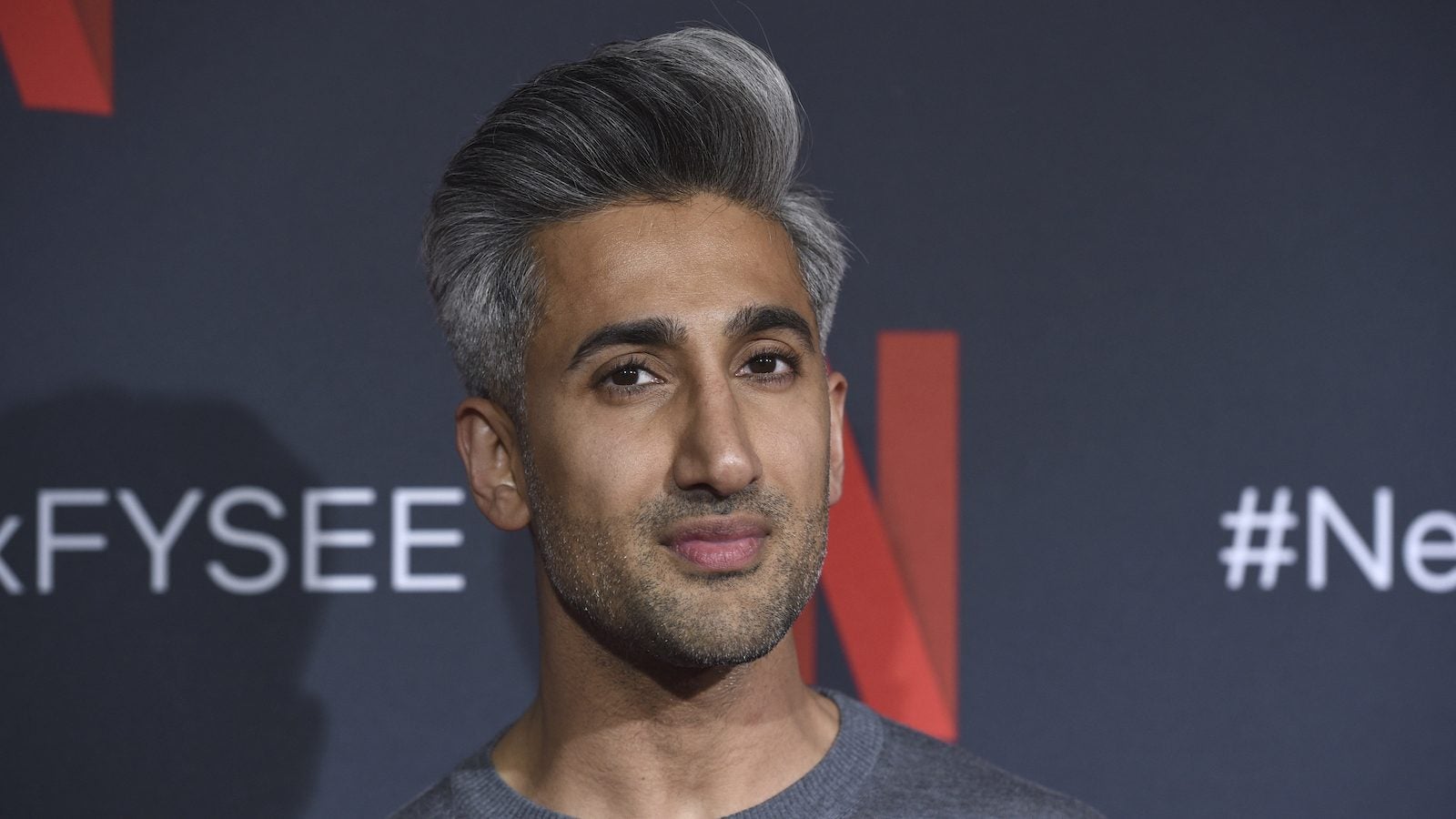Queer Eye’s Tan France has surprising advice about how often to buy new clothes
On the hit Netflix show Queer Eye, fashion expert Tan France aims to help transform participants’ lives with wardrobe updates featuring leather jackets, Chelsea boots, and patterned button-downs worn in his signature style, the French tuck. But while the show seems to endorse the idea that loading up on new duds can help people look more polished and professional, the 36-year-old France has surprisingly cautious advice for people early in their careers: Limit your shopping excursions to once or twice a year.


On the hit Netflix show Queer Eye, fashion expert Tan France aims to help transform participants’ lives with wardrobe updates featuring leather jackets, Chelsea boots, and patterned button-downs worn in his signature style, the French tuck. But while the show seems to endorse the idea that loading up on new duds can help people look more polished and professional, the 36-year-old France has surprisingly cautious advice for people early in their careers: Limit your shopping excursions to once or twice a year.
“When you’re younger and don’t have a lot of disposable income, it’s unwise to spend regularly,” France tells Quartz. “Don’t feel like you have to buy clothes every time you go out shopping with friends. Stay strong and know that you buying clothes, you buying the hottest new trend, isn’t going to benefit you massively.”
And though France doesn’t typically endorse fast fashion, he adds, he said he understands that such stores, along with thrifting, may be the most viable option for cash-strapped consumers.
France was sharing his thoughts on frugality for young professionals as part of a publicity push around his partnership with TransferWise, promoting a new debit card in the US that is meant to appeal to people who travel frequently overseas. France, who grew up in the UK, did a lot of traveling himself after starting his own business, the modest womenswear clothing company Kingdom and State, in 2011 in London.
As one might guess from France’s upbeat, no-nonsense energy on Queer Eye—and the fact that he managed to persuade the stylistically conventional comedian John Mulaney to try on a pink linen suit—he had to hustle hard to make the business work. In the early years of Kingdom and State, France says, he was flying back and forth between the US and the UK and often working other jobs on the side. The gigs he took were often decidedly unglamorous, ranging from data inputting to working as a secretary at a law firm and doing triage at a mental health facility.
While France admits that holding down multiple jobs was exhausting, he says he also learned a lot from his side hustles—from how to use Excel to how to manage people (or not) based on his experiences with his own bosses. And so he has some optimistic advice to young professionals who are feeling stretched thin as they try to get their careers started. “I would like the perspective to shift from, Oh my gosh I’m having to work so hard to, I’m getting to learn so much and benefiting from it,” he says.
It’s this kind of positive, empowering outlook that has won Queer Eye—and France himself—such a devoted fan base. That said, even critics who like the show have noted it has a tendency to conflate self-improvement with spending a lot of cash, whether on home renovations or highlights. “Money is the silent sixth member of the rescue squad,” Laurie Penny writes in an article for The Baffler. “The services that the Fab Five are offering are worth more than most of these men could possibly afford—there are thousands of dollars of new clothes and furniture on offer here.”
As a group, the Fab Five typically eschew the subject of spending. “Talking about money is tacky,” cast member Karamo Brown said in video for Wired, responding to a question about how much the show spends on its makeovers. (France added, “Even we don’t know that answer.”) But if France isn’t weighing in on the particulars of the show’s budget, it’s nonetheless revealing to hear that he’s been highly attuned to finances in his own professional life. His best advice for other entrepreneurs, he says, “is to be more aware of every penny that’s being spent.”